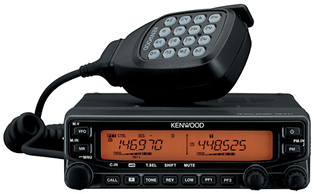Public Service
There are two main areas in which Radio Amateurs provide public services -- communications support for public events, and emergency communications. The former often serve as message-passing exercises for the latter, aside from the immediate public service they provide. Examples where amateurs provided emergency communication include Cyclone Tracy, the Newcastle earthquake, the 2001 floods in New South Wales and the 2001 Indian earthquake.
The importance of the public service facet of amateur radio cannot be over-emphasised. Aside from the warm inner glow one receives from helping people communicate in times of need, there is another (possibly more selfish) reason for helping others with our communications skills.
Although public service agencies have access to better communications facilities than in the past, amateur radio can (and does) still fulfil an important role during times of emergency. Amateurs have access to a wider range of operating frequencies than any other organisation (with the exception of the military), and more importantly, the knowledge with which to put these frequencies to best use in a given situation.
As amateurs, we have access to many parts of the radio frequency spectrum so by providing public service communications when its needed, we're at least giving the rest of society some return for the consideration given us.
Next: WICEN- Wireless Institute Civil Emergency Network

